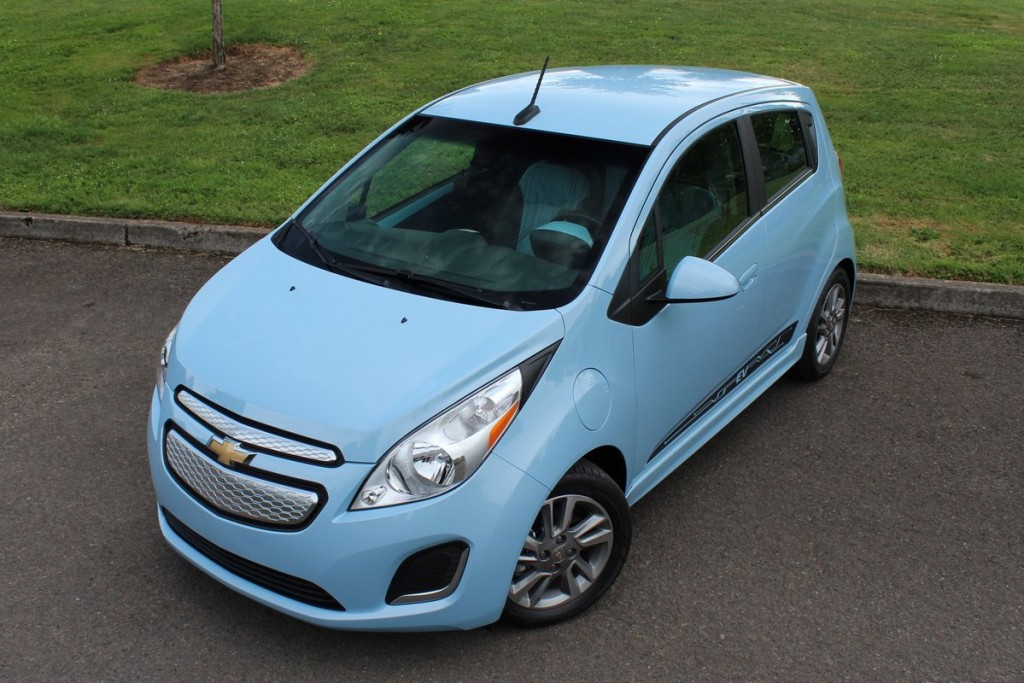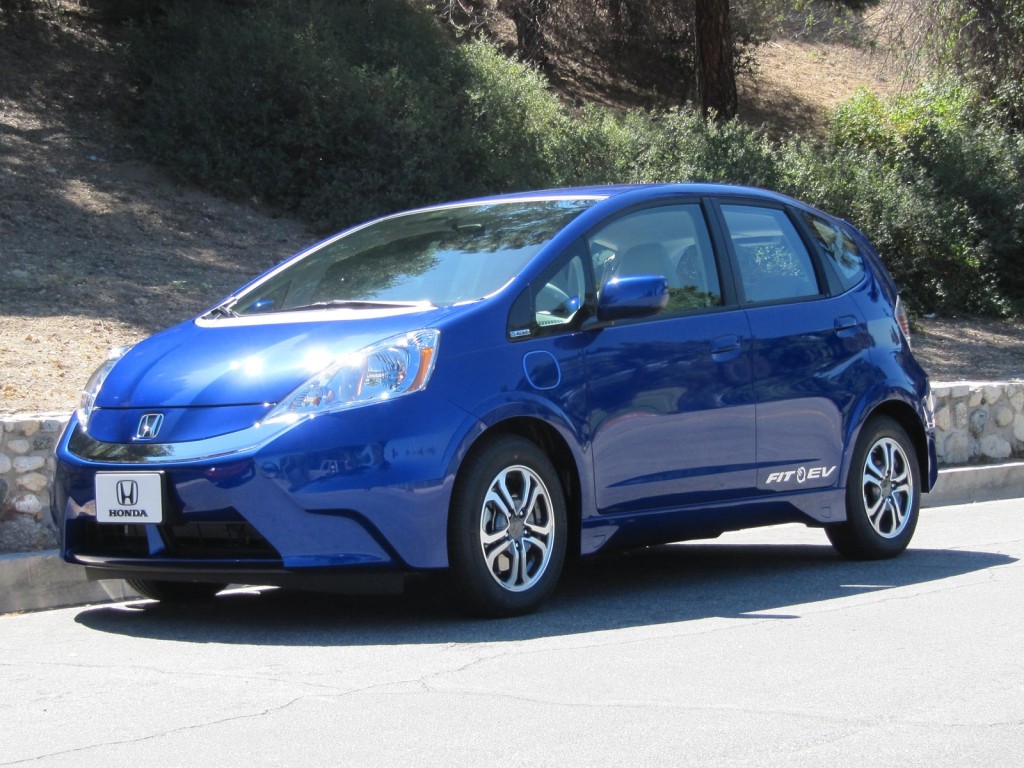There are now more than a dozen plug-in electric cars for sale in the U.S., but not all electric cars are created equal.
And a pair of recent articles about service challenges experienced by owners of the Toyota RAV4 EV underscores that buyers should be fully aware of the context in which their electric car is sold.
Only five plug-in cars have sold more than 10,000 units in the U.S. since launch: the Chevrolet Volt, Ford C-Max Energi, Nissan Leaf, Tesla Model S, and Toyota Prius Plug-In Hybrid.
MORE: Electric Cars: Some Are Real, Most Are Only 'Compliance Cars'--We Name Names
The Ford Fusion Energi plug-in hybrid could hit that mark this year, but nine others are low-volume or compliance cars.

2013 Fiat 500e electric car, Los Angeles drive event, April 2013
Volume matters
What's a "compliance car"? It's a battery-electric vehicle sold only to keep an automaker in compliance with California zero-emission vehicle rules.
Those regulations require the six largest makers selling in the state to deliver a certain number of vehicles with no tailpipe emissions, starting in 2012.
It's important to note that these are actually very nice vehicles; the phrase "compliance car" doesn't indicate that they're substandard in any way--the grounds on which some automakers have objected to the term being used for their specific vehicle.
Specially, compliance cars include the Chevrolet Spark EV, Fiat 500e, Honda Fit EV, and Toyota RAV4 EV--all of them sold only in California and a handful of other "ZEV Rule" states.
(A fifth model, the Ford Focus Electric, is sold nationwide, but only in very low volumes; Ford has been so consistently and publicly negative on its prospects that it may as well be a compliance car.)

2014 Chevrolet Spark EV - First Drive, Portland, July 2013
Service challenges
Two recent articles published by PlugIn Cars highlight in detail the downsides of buying such a compliance car:
- Drivers of Limited-Production EVs Face Challenges
- Servicing is a Big Issue With the Toyota RAV4 EV (Especially Outside California)
Among the biggest challenges is servicing. Toyota says it has just 53 dealers in the state of California certified to service the RAV4 EV, whose powertrain was largely designed by Tesla Motors.
The company strongly discourages owners outside that state from buying the car.
MORE: 2012 Toyota RAV4 EV: First Drive From Behind The Wheel (Video)
Out-of-state owners, and even owners in more remote parts of California, may have to have their cars trailered hundreds of miles to be serviced by an authorized Toyota dealer.
The same applies, with some detail differences, to buyers of the Chevy Spark EV, Fiat 500e, and Honda Fit EV (which, to be precise, can't be bought at all, only leased).

2013 Honda Fit EV drive event, Pasadena, CA, June 2012
Good reviews, teething troubles
The RAV4 EV got good reviews for performance, range, and capability on launch--it's basically a Tesla Model S powertrain in a crossover utility vehicle--but it appears to have a number of teething troubles.
And that's where owners get frustrated, because availability of trained service personnel is so limited that even if they do get their car to an authorized dealer, they may be sent home because no qualified technician has time open to look at the vehicle.
In the end, the lesson for those considering the purchase of an electric car is this: Understand the market position and the production volume of the car you're thinking of buying.
How many will be made?
If the carmaker says it will only ever build and sell 2,600 RAV4 EVs or 1,100 Fit EVs, be aware that your options for service and repairs will always be very limited.
If the carmaker intends to sell tens or hundreds of thousands of the model, however, your service options are likely to be considerably wider.
Today, those makers Chevy, Nissan, Tesla, and Toyota, with their Volt, Leaf, Model S, and Prius Plug-In Hybrid respectively. (We'll see how the BMW i3 does in its first year after it's launched this spring.)
Caveat emptor.
_______________________________________________












